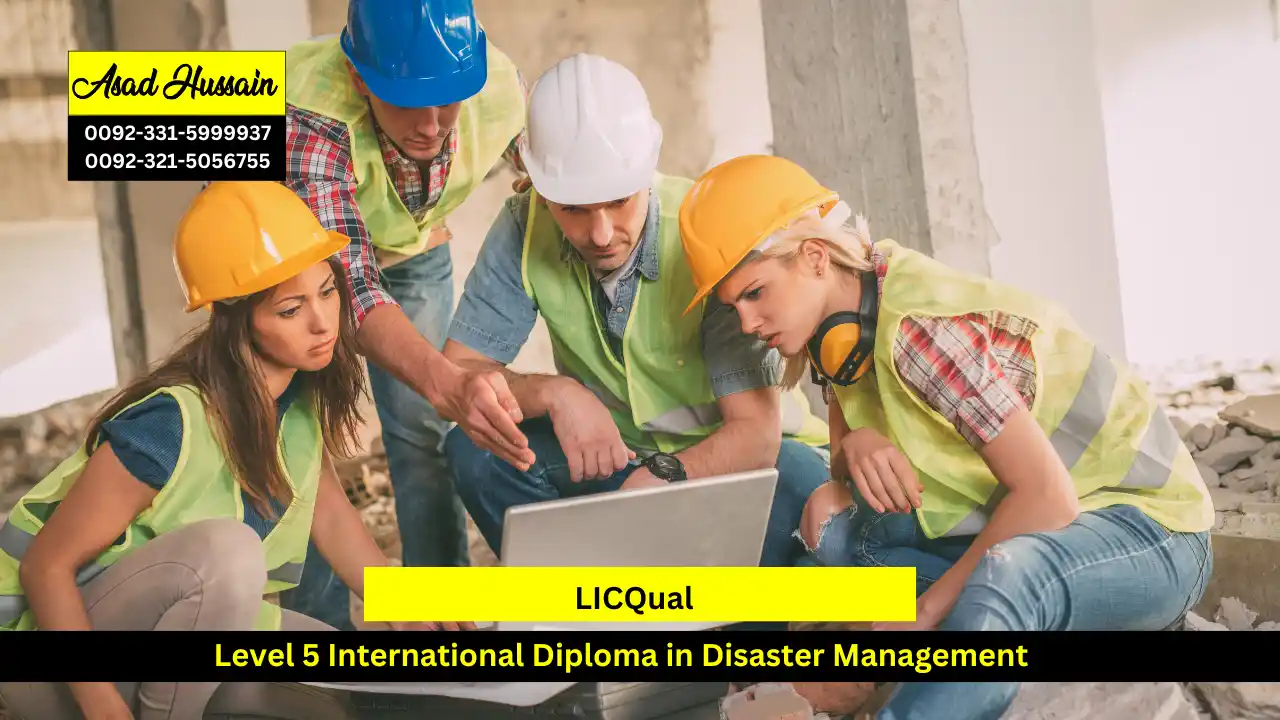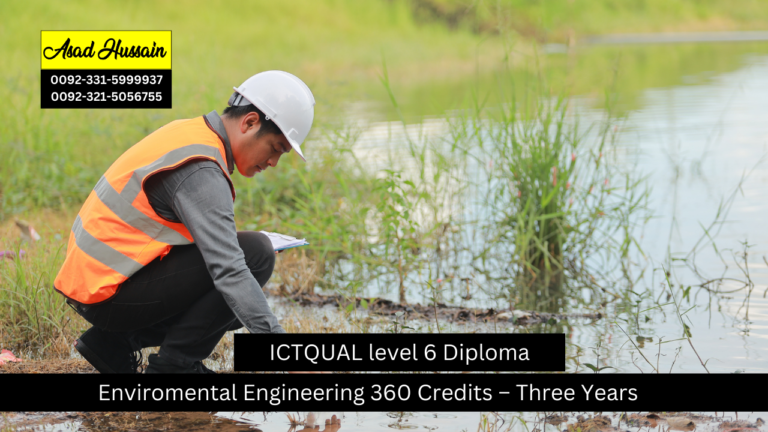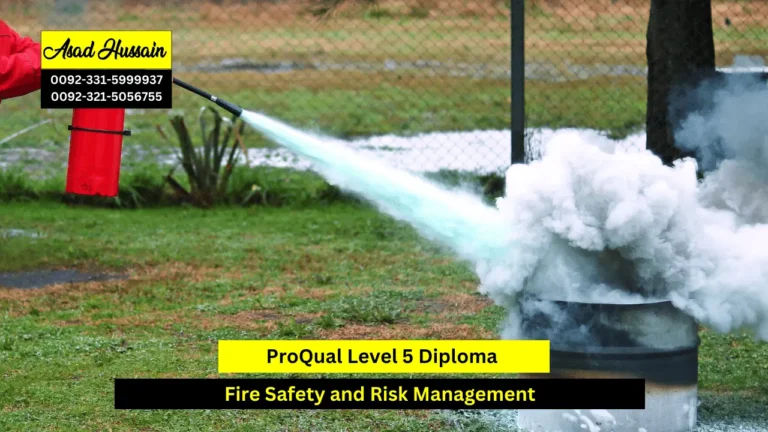In an era where natural and man-made disasters are becoming increasingly frequent and severe, the need for skilled disaster management professionals has never been greater. The Level 5 International Diploma in Disaster Management is designed to equip individuals with the knowledge and skills necessary to effectively manage and respond to emergencies. This blog post will explore the key aspects of this diploma, its benefits, and how it can pave the way for a rewarding career in disaster management.
Disaster management involves preparing for, mitigating, responding to, and recovering from disasters. This comprehensive field encompasses a wide range of activities, from emergency response and risk assessment to community preparedness and policy development. Effective disaster management aims to minimize the impact of disasters on human life, property, and the environment.
The Level 5 International Diploma in Disaster Management offers a comprehensive education in a field that is both challenging and rewarding. By equipping students with the necessary skills and knowledge, this diploma prepares them to effectively manage and respond to disasters, ultimately helping to protect communities and save lives. If you are passionate about making a difference and are ready to take on the challenges of disaster management, this diploma could be the perfect pathway for your career.
Program Highlights
Mandatory Units
- Unit 1. Disaster Management – Theory and Application
- Unit 2. Disaster, Crisis, and Emergency Preparedness Communication
- Unit 3. Risk Perception Awareness in Disaster Management
- Unit 4. Gender inclusive Disaster Management: A non-discriminatory approach
- Unit 5. Foundations of Research
Educational Qualifications
- High School Diploma or Equivalent: Applicants must have completed secondary education and obtained a high school diploma or an equivalent qualification. This demonstrates that the candidate has the foundational knowledge necessary for advanced studies.
- Relevant Qualifications: While not mandatory, having prior qualifications in related fields such as emergency management, public health, environmental science, or social sciences can be beneficial and may strengthen an application.
Work Experience
- Professional Experience: Although not always required, applicants with professional experience in emergency services, disaster response, humanitarian aid, or related fields are often preferred. Such experience provides practical insights and enhances the learning experience.
Language Proficiency
- English Proficiency: Since the program is typically delivered in English, proficiency in the language is essential. Non-native English speakers may be required to provide proof of English language proficiency through standardized tests such as IELTS, TOEFL, or equivalent.
Personal Statement
- Statement of Purpose: Applicants are usually required to submit a personal statement or statement of purpose. This document should outline the candidate’s motivations for pursuing the diploma, relevant experience, career goals, and how the program aligns with their aspirations.
References
- Letters of Recommendation: Some programs may request letters of recommendation from academic or professional references. These letters should attest to the candidate’s abilities, work ethic, and suitability for the diploma program.
Additional Requirements
- Interview: In some cases, applicants may be asked to participate in an interview as part of the selection process. The interview allows the admissions committee to assess the candidate’s communication skills, motivation, and fit for the program.
- Technical Requirements: As the program may include online components, applicants should have access to a computer and reliable internet connection to participate in virtual classes, complete assignments, and engage with online resources.
Unit 1: Disaster Management – Theory and Application
- Understand Key Concepts: Demonstrate a comprehensive understanding of the fundamental theories and concepts of disaster management, including the phases of disaster management (prevention, preparedness, response, and recovery).
- Apply Theoretical Models: Apply various theoretical models and frameworks to real-world disaster scenarios, demonstrating the ability to analyze and address complex disaster situations.
- Evaluate Disaster Management Strategies: Critically evaluate the effectiveness of different disaster management strategies and approaches in various contexts.
- Develop Management Plans: Design and propose disaster management plans and strategies based on theoretical principles and best practices.
Unit 2: Disaster, Crisis, and Emergency Preparedness Communication
- Assess Communication Needs: Identify and assess communication needs and challenges in disaster, crisis, and emergency situations.
- Develop Communication Plans: Develop effective communication plans and strategies for disseminating information to the public and coordinating with stakeholders during emergencies.
- Utilize Communication Tools: Utilize various communication tools and technologies to enhance information flow and manage public perceptions during crises.
- Evaluate Communication Effectiveness: Analyze the effectiveness of communication strategies and make recommendations for improvement based on case studies and real-world examples.
Unit 3: Risk Perception Awareness in Disaster Management
- Understand Risk Perception: Explain the concept of risk perception and its impact on disaster preparedness and response.
- Analyze Public Perception: Analyze how different factors, such as cultural, social, and psychological elements, influence public perception of risk and disaster management.
- Develop Risk Communication Strategies: Create strategies for effectively communicating risk and managing public awareness to enhance disaster preparedness and response.
- Assess Risk Mitigation: Evaluate the effectiveness of risk mitigation measures based on public perception and response patterns.
Unit 4: Gender Inclusive Disaster Management: A Non-Discriminatory Approach
- Understand Gender Dynamics: Explain the role of gender in disaster management and the importance of adopting a gender-inclusive approach.
- Identify Gender-Specific Needs: Identify and address the specific needs and vulnerabilities of different gender groups in disaster situations.
- Develop Inclusive Strategies: Develop disaster management strategies that promote gender equality and inclusivity, ensuring that all gender groups have equitable access to resources and support.
- Evaluate Gender Impact: Assess the impact of gender-inclusive practices on disaster management outcomes and propose improvements based on feedback and analysis.
Unit 5: Foundations of Research
- Understand Research Methodologies: Demonstrate a thorough understanding of various research methodologies and techniques relevant to disaster management.
- Conduct Research: Design and conduct research projects related to disaster management, including data collection, analysis, and interpretation.
- Apply Research Findings: Apply research findings to develop evidence-based strategies and solutions for disaster management challenges.
- Critically Review Research: Critically review and evaluate research studies and their implications for disaster management practices.
The Level 5 International Diploma in Disaster Management is designed for professionals and aspiring experts who are passionate about enhancing their skills in crisis response and disaster management. It is ideal for individuals currently working in emergency services, humanitarian aid, public health, or environmental management who seek to deepen their knowledge and advance their careers. Additionally, the course is well-suited for recent graduates in relevant fields who wish to specialize in disaster management and gain practical, actionable skills. Those interested in pursuing roles in international organizations, government agencies, and non-profit sectors will find this diploma particularly valuable. Whether you are looking to make a significant impact in your community or prepare for global disaster response challenges, this course provides the comprehensive training and expertise needed to excel in the field.







